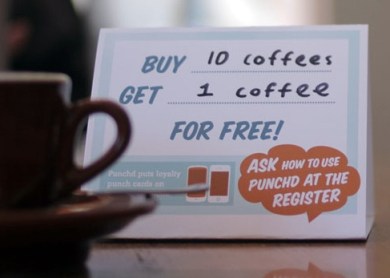
Google has invested a lot in mobile payments. Despite all the work that has gone into the Google Wallet product, the results so far have been less than stellar. Executives at several other mobile payments companies that I have spoken with say the issue with mobile payments is not so much the technology, but customer adoption. They point to numerous efforts and technologies that have gone nowhere as evidence.
The real issue, they point out, is that the existing payment solutions (credit cards, bank cards etc.) just work too well. So much so that customers and merchants have little or no incentive to try out something new. Especially when it means buying new hardware and investing money to train staff.
Executives at these payment providers are slowly coming to the realization that to have customers use mobile payments, they need to provide real incentives to customers and merchants.
With the Punchd acquisition, Google is looking to solve the customer adoption problem. We have seen that when merchants provide a digital punch card with real rewards to their customers, customers use the service in large numbers. In fact, at some of our client locations, we have seen 4x the usage of a traditional paper or plastic loyalty card. This, of course, makes merchants very happy as they now have access to customer data like emails that can be used to not only drive repeat usage but also to drive social engagement and word of mouth.
The big idea here is that once customers and merchants start getting real value from these mobile-based digital and virtual programs, getting them to switch to a mobile payment card from their digital wallet is a whole lot easier than asking them to switch to mobile payments directly.
So with its Punchd acquisition, Google is leading the charge in the adoption of mobile wallet technology. Although Google has made the first move in this important area, you can rest assured it will not be the last.
(By the way, my own company Punchh is not associated with Punchd. We are delighted that Google is acquiring Punchd — we expect it should eliminate any confusion over our names.)
VentureBeat's mission is to be a digital town square for technical decision-makers to gain knowledge about transformative enterprise technology and transact. Learn More